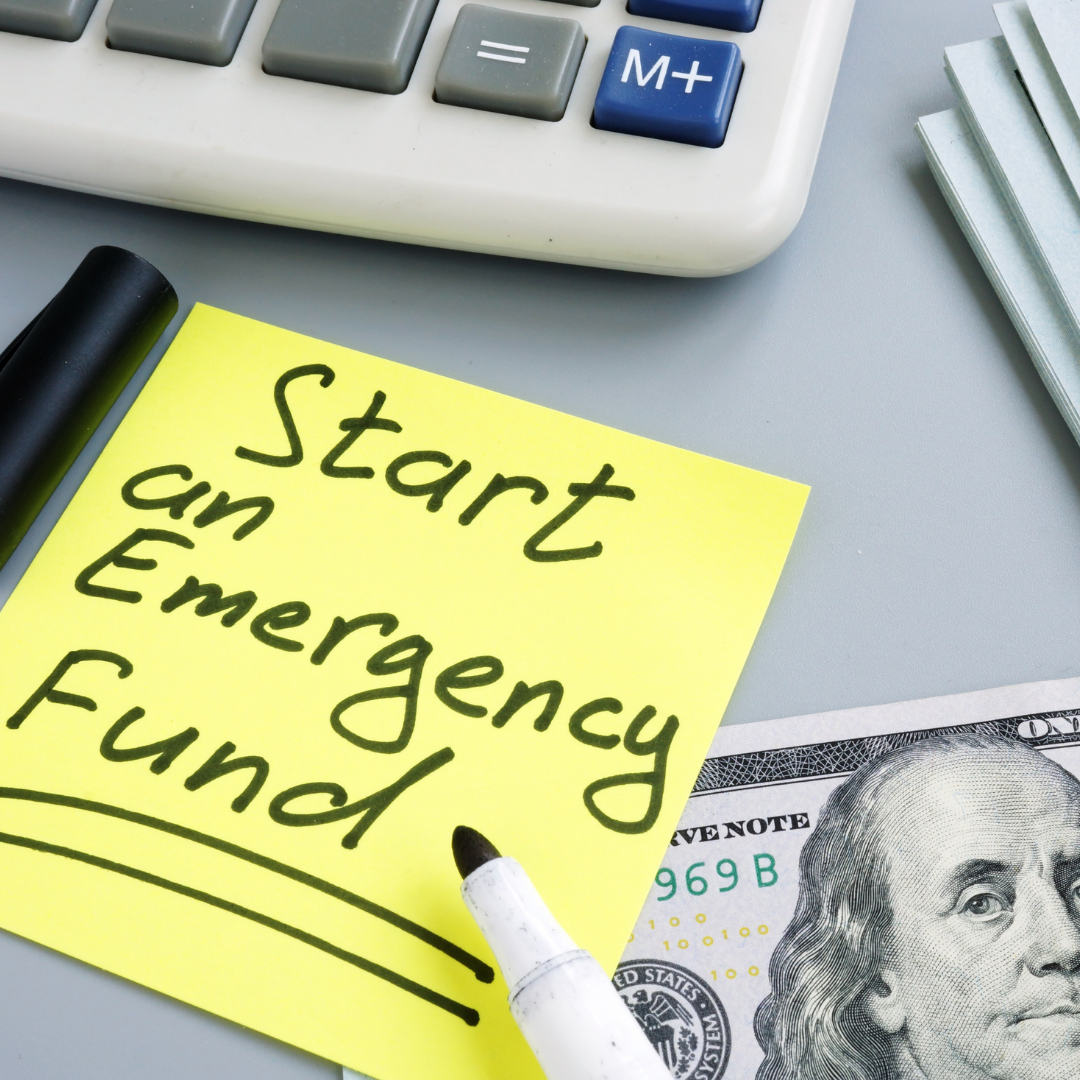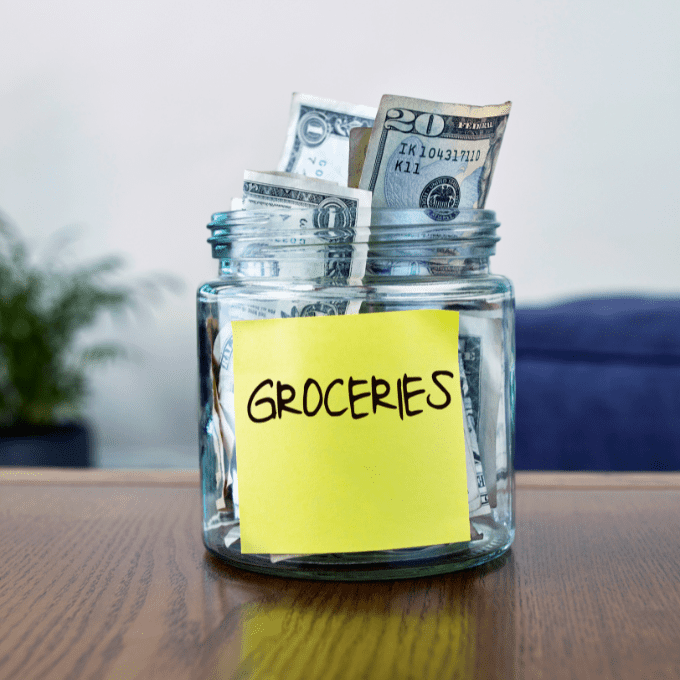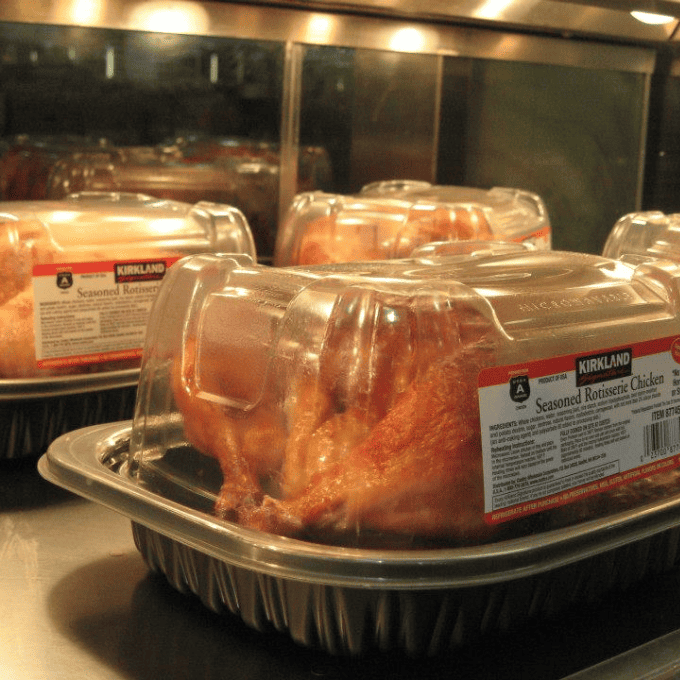Do You Really Need an Emergency Fund? (Tips to get one started!)
Things happen in life that you are not prepared for like a blown tire, a fridge dying, or an alternator going out in your car. These situations can be an inconvenience or a huge stress inducing headache. The difference between these reactions is having an emergency fund.
An emergency fund is what makes a possible financial disaster into just a bad afternoon. An emergency fund allows you to pay cash for unexpected issues that come up without having to use a credit card, borrow money, or get behind in your bills.
According to CNBC, 56% of Americans cannot pay a $1000 unexpected expense with savings. That most people would have to pay for it with a credit card or take out a loan. The great thing about that fact is that it is actually an improvement from the past few years. In 2021, 61% of Americans couldn’t pay the expense. I am hoping this means more people are realizing the importance of having an emergency fund!
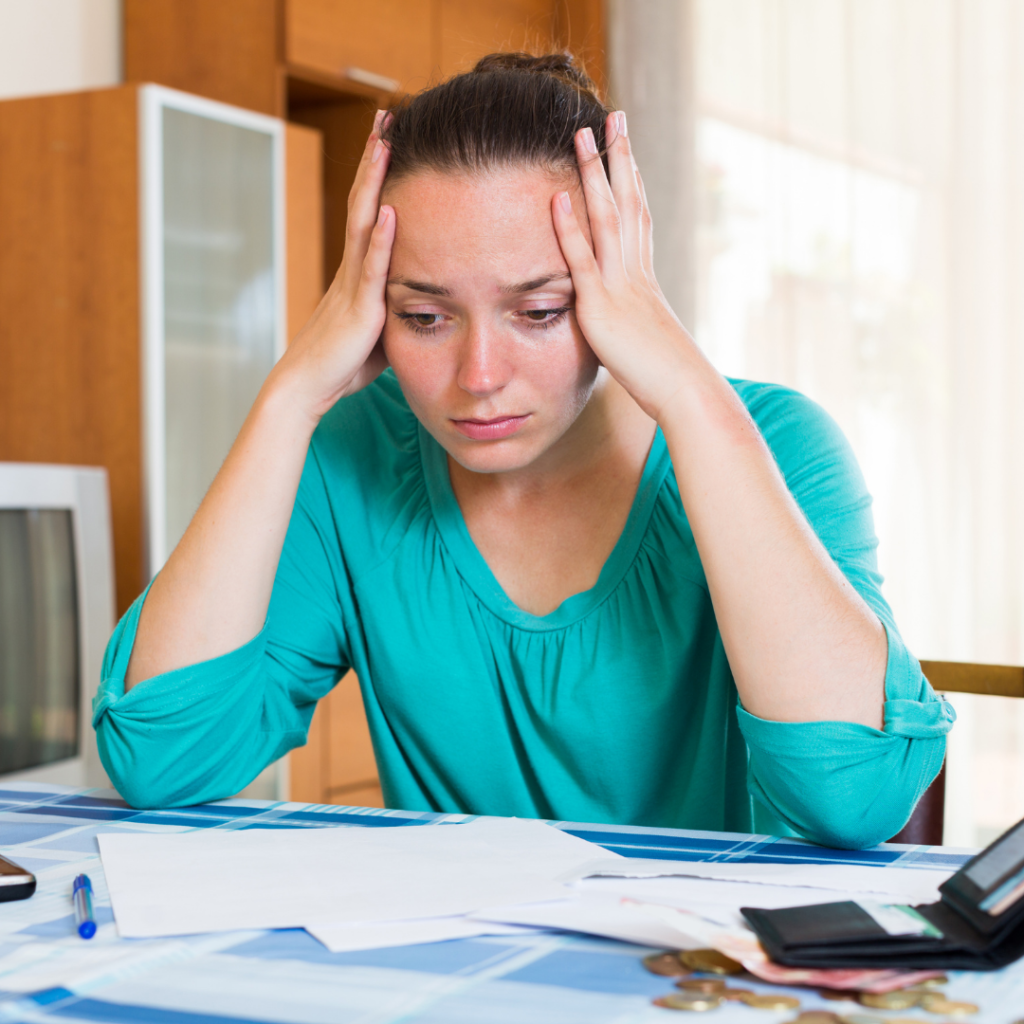
How much should you save for an emergency fund?
The basic emergency fund should have $1000 in it. This is money that can be in your savings account or cash, as long as you can get to it in a hurry if needed. I prefer to keep it in a savings account attached to my checking account, so I can transfer funds whenever I need it.
Lots of people prefer to have an emergency fund in cash at home, but if you feel that having cash around may be too tempting, then keep it in a bank. An emergency fund is only there in case of an emergency, it is not a fund that you should borrow from if you run a little low on spending money.
Once an emergency fund is at $1000, I like to forget it exists. I don’t look at it or touch it, I just know it is there if needed, but other than that, it no longer exists in my brain. If you need a little motivation to get started saving your emergency fund, take the “Save $500 with a deck of cards! (Savings Challenge)” to get the first half of your fund started!
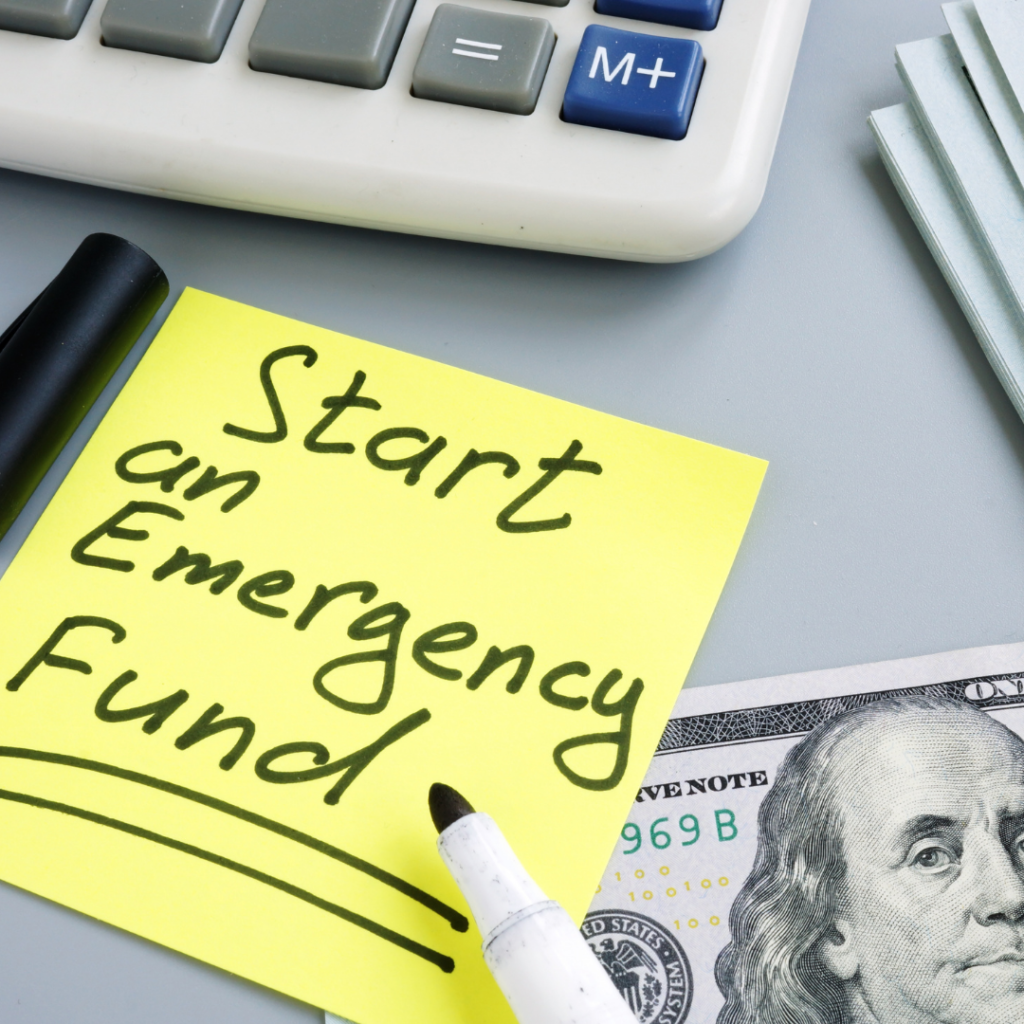
What is considered an emergency?
So, if you can’t borrow from the emergency fund when you are low on cash, then what can you spend it on? I think of an emergency as something that will keep me from making money or going to work.
So, if my washing machine breaks and I can’t wash clothes for work that may seem like an emergency, but I could go use a laundromat for a few months and save up for a new or used washing machine. It’s an inconvenience for sure, but it’s not an emergency that has to be fixed right now.
If I have a flat tire that could keep me from going to work, then I would use my emergency fund to cover the cost to replace or get a new tire. This type of situation doesn’t have a safe way to delay the expense. Yes, I could drive on a donut for a few weeks, but that could actually cause more harm to my car because a donut tire is meant as a very temporary solution not a couple of weeks solution.
Another example of an emergency is if my fridge suddenly dies and all the groceries, I just bought are going to go bad. Now I would immediately start looking on Facebook Marketplace, Craigslist, Local for Sale Groups, etc to find a cheap replacement to last for a while. I would not run to Lowe’s or an appliance store and buy a brand new one. (When you buy something brand new under a time constraint like that, you always end up paying a premium price because you can’t compare pricing and do your research)
To be honest, I have very rarely ever used my emergency fund. Usually, I am able to think outside of the box and get creative with a solution that is low in cost and buys me enough time to thoroughly research before purchasing a new replacement.

Should you have multiple Emergency Funds?
Now I am sure you have heard that an emergency fund should have anywhere from 1 month to 12 months of income saved up. I believe that every family should have two emergency funds: a $1000 instant access for small problems and an income back-up for large problems.
As a stay-at-home mom, I rely heavily on my husband’s income. If something were to happen to his job or if he was unable to work, we would have to have something to pay the bills. In our family, we feel most comfortable with a 6 month emergency income fund. This is enough money to pay our normal bills for 6 months at our current budget. We also kept in mind that if needed we could move to a bare bones budget and be able to live off of it for probably close to a year.
I recommend that you have at least 3 months of your income saved up just in case. If 12 months of income makes you feel safer, than definitely do that. The point is to talk to your spouse and pinpoint an amount that you are comfortable with and that makes you feel prepared.
If you currently have any debt that you are making monthly payments on (except your mortgage), I would start with the $1000 emergency fund and then focus on getting rid of debt first. Saving money while also paying interest every month is like taking 2 steps forward and 1 step back every month.
Once you pay off your debt like car loans, credit cards, and medical bills, take those monthly debt payments and put them in your Emergency Income Fund.
What are the easiest ways to build an Emergency Fund?
If you are new to budgeting and getting your financial house in order, you may be overwhelmed by putting $1000 aside. This emergency fund is essential to make sure that you don’t start adding more debt to what you are trying to get paid off.
The easiest ways to save $1000 is to use money that doesn’t come from your paycheck!
- use your federal and state tax refund
- sell off items in your home that you are not using like old furniture, unused toys, outgrown kids clothing, etc.
- pick up a short-term side gig like instacart or door dash.
- do a side job like mowing lawns, cleaning gutters, or any other manual labor. Check out Facebook and ask friends and family if they have any side jobs that they need help with.
- start a temporary part time job to bring in extra income to pay off debt
Do you need a visual way to keep track of building your emergecy fund? Check out the free printable trackers here!
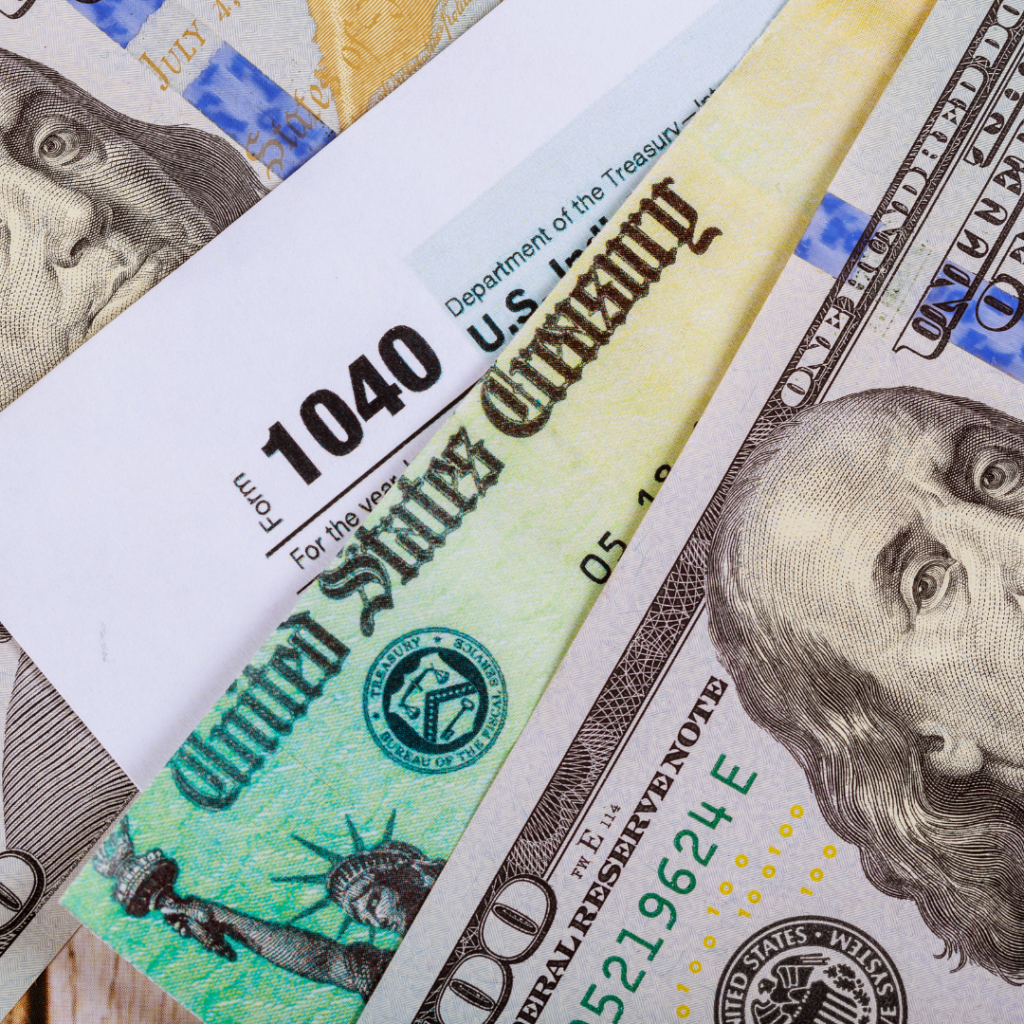
Is an emergency fund really necessary?
Peace of mind and being prepared financially is always worth it! An emergency fund is what takes stressful situations and make them more manageable. Most people start to realize they have a lot less “emergencies” when they are actually prepared to deal with them.
I will never forget the first time I had a flat tire in a parking lot by myself. I was terrified and freaking out so bad that I had to call my dad to come rescue me. I was in my late 20s and felt like such a loser for having to call my parents for an emergency, but I panicked, and I let the stress overwhelm me. In the 30 minutes it took for him to get to the shopping center that I was stranded at, I realized that this was not going to be as bad as I first thought.
My dad taught me how to put the donut tire on my car and followed me to the tire shop. I walked in and didn’t faint when they told me it would be $200 to replace the tire because it couldn’t be repaired.
I transferred the money over from my emergency fund, and I paid for the new tire. I am sure the cashier thought I was insane because I was smiling from ear to ear. I was actually so happy to pay for the new tire!
Wait! What?!?!?! YES! I was happy to pay for that new tire with my debit card. Not with my credit card or a loan from my dad, but with my money that I had saved up for just in case something happened.
I had my first “Adulting” moment. In the past, I would have put it on a credit card or paid other bills late. I would be freaking out about how to catch up on paying my bills and how I was going to eat and buy gas.
That feeling of just moving funds around, paying for a new tire, and not having to panic was so satisfying. I realized then and there that having an emergency fund was priceless!


